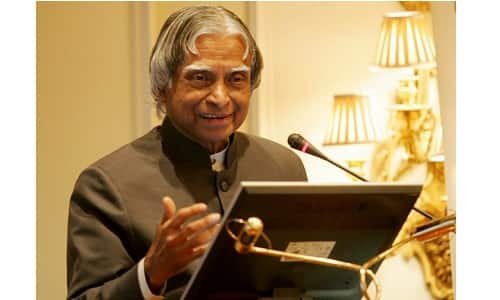The matter of students’ engagement in politics is a subject of much discussions and debates in all the layers of the society. All over the world endless arguments have taken place in support and in opposition of the practice. For some, politics happens to be that special platform for the students where they can flourish their passions with great enthusiasms. Then there are the ones who argue that the involvement of the students in politics can make them deterred from their primary educational goals. This results in the formation of a governance team that has inadequate academic knowledge. We will, here, bring forth both these sides to find out if one can reach any understanding from them.

Advantages of Students in Politics Fresh Perspectives and Innovative Ideas:
Engaging students in politics helps them offer fresh perspectives to political discourse. Young people may provide new perspectives to complex political issues. This new perspective disrupts traditions and inspires creative problem-solving.
Unlike experienced politicians who are locked in ideas and bureaucratic processes, students are idealistic and open-minded. Their willingness to question conventional wisdom and challenge the established quo may revive political regimes. Idealism often innovates policy and pushes political constraints.
1. Youth zeal:
Young people bring unrivaled energy and enthusiasm to politics. Political change requires passion and energy, thus this dynamic mentality is essential. Passion for issues often leads to steadfastness among students.
Student politicians’ passion may also increase political participation. Their relatability and peer connection make them outstanding political participation advocates for youth. A strong and thriving democracy requires young involvement in politics to address youth concerns and desires.
2. Representation of Youth Concerns:
Student politics can effectively represent the concerns and interests of young people, who are underrepresented in traditional political organizations. Students may fight for school reform, employment, and age-related social issues. Actively engaged in politics ensures these critical concerns are prioritized.
This representation is vital because young people have distinct challenges and opportunities that older, more experienced politicians may miss. Student engagement in politics amplifies youth voices, leading to more detailed and relevant policy talks and decisions that represent their needs.
3. Bridging the Generation Gap:
Political students may foster intergenerational dialogue and promote understanding and cooperation on crucial issues. Young individuals discuss their ideas with older, more experienced politicians to question entrenched viewpoints and promote inclusive decision-making.
Bridging generation gaps may help handle complex, diversified issues with fresh approaches. Students encourage intergenerational dialogue and collaboration to create a more comprehensive governing system that relies on elders’ wisdom and youth’s energy and creativity.
4. Political Education:
Political participation gives students valuable life experience and information. Political participation teaches youngsters about government, governance, and politics. This firsthand experience helps them become educated and effective leaders.
Political experience may assist future leaders make informed decisions and manage public service. Students learn about government procedures and political issues in this unique educational experience.
Political participation by students gives fresh insights, energy, passion, effective representation of young problems, generational bridges, and excellent political education. Students’ political power may enhance democratic states worldwide, notwithstanding its limits. Promote their participation to create a strong and responsive political climate.
Disadvantages of Students in Politics Academic Distraction:
Political participation may distract students from their studies, which is problematic. Political participation and scholarly focus clash. This struggle may harm students’ grades and learning.
It takes time and effort to be political. This love for politics may encourage pupils to miss classes, fall behind, or disregard schoolwork. Their academic performance and goals may suffer.
Politics’ stress and time constraints may cause anxiety and tiredness, making academic success tougher for students. Time management and prioritizing are needed to balance political activity with academic excellence.
1. Lack of Experience:
Insufficient experience may hinder student political involvement. Student politicians often face severe political issues and governance and lack competence.
Student politicians without experience may make blunders, misinterpret policies, or make bad judgments. Their mistakes may harm their communities and political initiatives.
Political students must study and seek mentoring from experienced professionals to overcome this. Actively studying and leveraging others’ expertise may help student politicians understand tough issues and navigate government.
2. Instability
The engagement of students in politics may introduce instability. Students’ transient lives and school focus cause this. They may lack the commitment and competence to navigate government complexities.
Student political beliefs may change often, disrupting rules and activities. Long-term plan execution and governance consistency may suffer. Rapid leadership and decision-maker changes may hamper policymaking and major initiative implementation.
Organizations that include students in politics must facilitate power and knowledge transfer. This may lessen student instability due to lack of passion and skill, making governance and policy implementation simpler.
3. Lack of Experience:
While excellent, idealism may collide with political reality. Idealism may cause students to pursue utopian goals without grasping policymaking’s challenges and costs.
Well-intentioned student proposals may neglect budgetary constraints, political realities, or consensus-building. Broken promises, high expectations, and student and constituency unhappiness may result.
Students of politics must balance idealistic ideals with realism to solve this dilemma. Doing thorough research, gaining expert help, and collaborating with experienced politicians may help students solve societal issues while keeping loyal to their beliefs.
4. Potential Exploitation
Politicians and interest groups often see students as vulnerable prey. While important, their enthusiasm and passion may affect them, compromising their ability to make autonomous decisions that serve their citizens.
Professional politicians or interest organizations may exploit youngsters’ enthusiasm. Students may promote views that contradict their goals or their constituents’ best interests.
To prevent exploitation, politics students must be autonomous, analytical, and ethical. Students may manage political involvement with integrity and public benefit by seeking mentorship from reliable people and groups.
Student politics has perks and downsides. They bring new ideas, enthusiasm, and the ability to represent young issues, but they also face academic distraction, inexperience, instability, idealism vs. reality conflicts, and exploitation. Students must prioritize their studies, seek mentoring, and approach politics with a balanced and pragmatic perspective to create a more dynamic and inclusive political scene.
Conclusion
And here we are in the end, trying to find what would be the final word about this subject. On one hand the aspects of bringing fresh perspectives by the students, utilizing their youthful energy as well as speaking for the concerns of their age is appealing. But on the other hand, there are severe issues of low experience level, academic distraction etc. None of the sides can be undermines.
So a balance is needed in the process. Proper guidance is provided both from the sides of the institutions and the political arena so that the students in the student politics. Then it is possible for the students to acquire the necessary knowledge and experience in the process, the elements essential for a strong governance. A measured step in this process can be the promise of a great political leader of the future.

Rahul Kumar is a passionate educator, writer, and subject matter expert in the field of education and professional development. As an author on CoursesXpert, Rahul Kumar’s articles cover a wide range of topics, from various courses, educational and career guidance.



